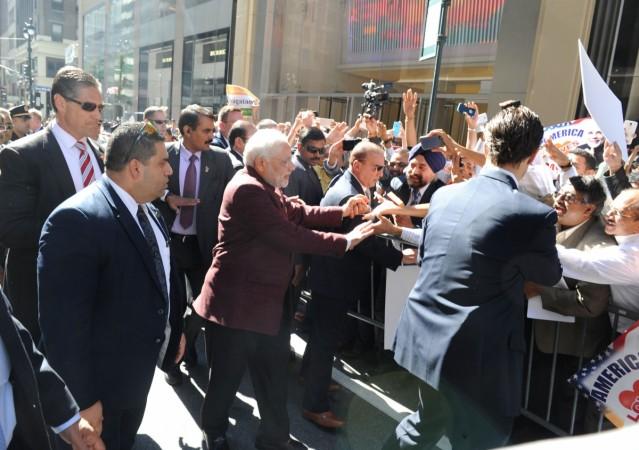
It couldn't have been more coincidental than this. Just a day after the Economist came up with a piece saying Prime Minister Narendra Modi is "a fine administrator but not so much as a reformer", the latter claimed in a meeting with the industry leaders during his just concluded visit to the US that his government has carried out as many as 7,000 economic reforms in three years just to make the country more business friendly. It means the government has done more than 2,333 reforms in a year; more than six a day!
This has brought the focus back on the Economist article. If PM Modi is indeed doing it so fast, then why is the world looking to him with a pinch of pessimism?
'Ease to do business': India's rank is worse than even its Fifa ranking
The Economist's article is backed by the fact that India is ranked 130th out of 190 countries when it comes to ease of doing business, as was revealed by the World Bank's 'Doing Business' report in last December. It is worse than even India's ranking (100) accorded by Fifa, the world body of football – a game in which India are a non-entity on the international stage.
So, what was in Modi's mind when he made the staggering claim, especially just when a discomforting piece was brought out by the Economist?
The Opposition has mocked the prime minister, saying it was a slip of tongue after a tiring journey, but the PM should have kept in mind that just reverse to its track record in politics, the NDA has not been able to show any major achievements in the domain of economics.
Demonetisation has not delivered in long run
The much-vaunted demonetisation was seen as a successful stroke but just as the Economist article said, it was the "most eye-catching economic initiative of the past three years" but not a sound policy. The GDP has taken a beating because of the measure and India's progress as the fastest growing economy has been disrupted. US President Donald Trump did not care for the micro-details while praising India's economic performance under Modi, but it has certainly not ushered in the acche din, as many saffron supporters had expected.
Minimum government? We see no retreat of the State
Modi has been accused of only tinkering with the economy and not showing a brave face to bring the economy out of the government's influence despite claiming to do so [maximum governance but minimum government]. The public sector-dominated banking system has been struggling, more so because of defaulters, but Modi has not shown enough spine yet to pen a new script to overhaul it. There have been no reforms for dysfunctional markets for land, labour or capital, as the Economist has put it. In other fields, political compulsions have kept economics a second preference, helping things little.
Building on the UPA's initiatives
The Modi government, on the other hand, has continued to build on a number of initiatives that were taken by the previous UPA government and showed them to be its own. It is because of the BJP's blinding propaganda strategy and the lack of a credible opposition that Modi's underachievement in the field of economics is not been getting truly revealed and the prime minister is happily claiming that his government has initiated 7,000 reforms while meeting businessmen overseas.
The Modi government, like any other in the history of India, has found it difficult to dissociate economics from politics and do things that would help the former and facilitate the living of billions in the country. Modi's Finance Minister Arun Jaitley has claimed that no government has done so much reform as the current one but then the question comes up: Why compare with the worse and not the best ones?
The focus is more the Goods and Services Tax (GST) now but given the confusion that still prevails, three days ahead of the date it comes into operation, is there any guarantee that it will not leave a terrible impact like demonetisation for the not-economically-well-off sections? Who has an answer for that?
Modi's tenure so far has mostly been helped by 'image creation' through publicity blitzkrieg but while political battles can still be won with them, economics is a much tougher nut to crack. It is a science after all and populism is not enough a weapon to win over it.

















